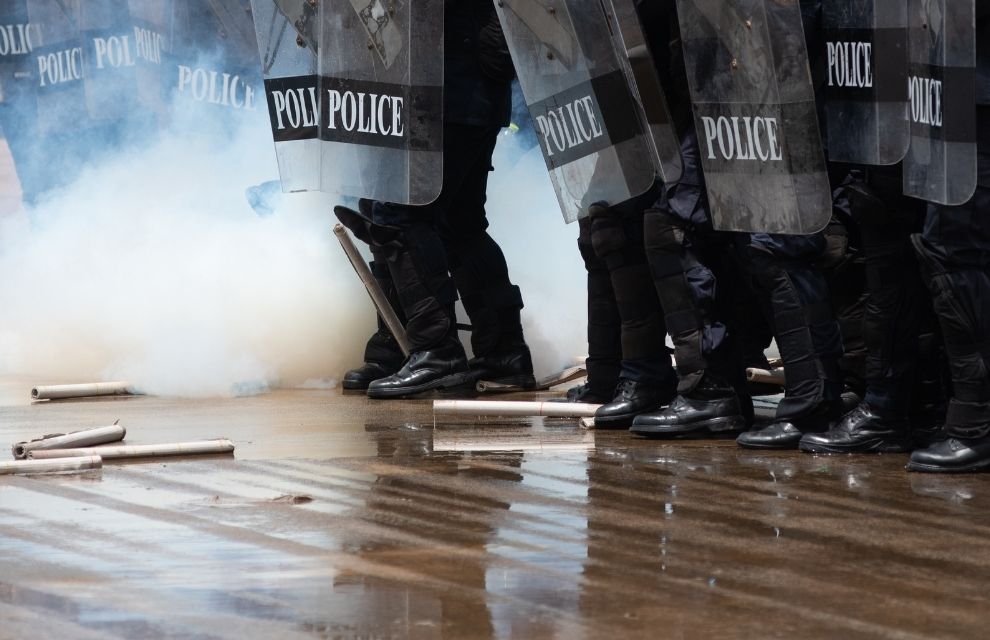Business continuity planning (BCP) needs to proactively address political violence risks, particularly in highly-exposed sectors such as retail, according to the latest issue of Global Risk Dialogue from Allianz Global Corporate & Specialty (AGCS).
AGCS explains that damages, disturbances and, ultimately, losses from riots, protests, vandalism or other forms of civil unrest are now among the main political risk exposure for companies in the UK and worldwide.
Anti-lockdown protests, Black Lives Matter demonstrations or arson attacks on mobile phone towers as well as the ongoing impact of the COVID-19 pandemic as it will likely drive further activity.
Commenting on civil unrest as a key business risk, AGCS outlines that political risks and violence returned to the top 10 risks for the first time since 2018 in their Allianz Risk Barometer 2021.
Verisk Maplecroft, a research firm specialising in global risk analytics, expects 75 countries to experience an increase in protests by late 2022. Of these, more than 30 — largely in Europe and the Americas — will likely see significant activity.
AGCS’ Global Risk Dialogue states that political violence also caused significant insurance claims in 2020.
It notes protests in 140 cities across the US following the death of George Floyd at the hands of the Minneapolis police. It highlights that while the protests were mostly peaceful, the arson, vandalism and looting that did occur, according to Axios, will cost the insurance industry at least $1 billion to $2 billion in claims.
It also notes the ‘yellow vest’ demonstrations in France that were in response to the French government and French president Emmanuel Macron Macron.
AGCS notes that shops along the Champs-Élysées in Paris were looted and heavily damaged, which drove customers away. After only a few weeks of demonstrations, the French retail federation reported that retailers nationally had lost $1.1 billion in revenue.
The Global Risk Dialogue concludes that the COVID-19 pandemic is a key driver behind the rise of civil unrest as it has both magnified underlying long-standing grievances and given them a focal point.
AGCS explains: “The pandemic has negatively affected political stability, increasing polarisation and bringing into sharp relief issues surrounding equality, worsening labour conditions and civil rights.”
This includes the rise of conspiracy theories which resulted in a theory that links 5G technology with COVID-19 which resulted in a series of arson attacks on mobile phone towers in the UK and other European countries.
AGCS highlights that businesses need to review their BCP. It notes: “Typically, these only focus on national catastrophes, but there is a growing need for BCPs to address political disturbances and other types of disruption like cyber incidents. Having defined, and tested, procedures in place is crucial – these should focus on staff, clients and include general communication and social media plans.”
AGCS adds that companies should also review their insurance policies.
“Property policies may cover political violence claims in some cases but insurers also offer specialist coverage to mitigate the impact of strikes, riots and civil commotion via the specialist political violence market,” the Global Risk Dialogue notes.
Commenting on the findings, Bjoern Reusswig, head of global political violence and hostile environment solutions at AGCS, outlines: “Fortunately, large scale terrorism events have declined drastically in the last five years. However, the number, scale and duration of riots and protests in the last two years is staggering and we have seen businesses suffering significant losses.”
He adds: “Civil unrest has soared, driven by protests on issues ranging from economic hardship to police brutality which has affected citizens around the world. And the impact of the COVID-19 pandemic is making things worse — with little sign of an end to the economic downturn in sight, the number of protests is likely to continue climbing.”






